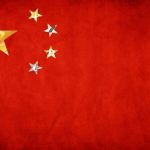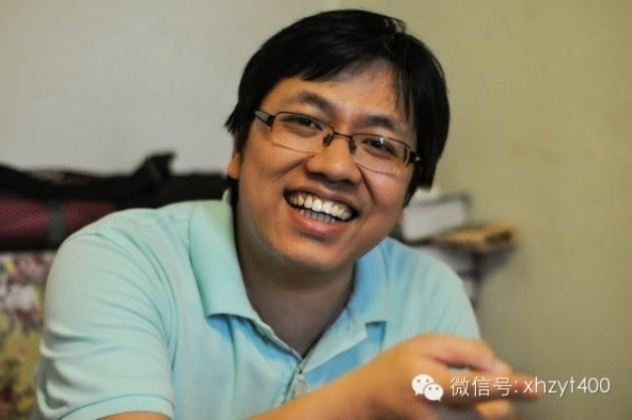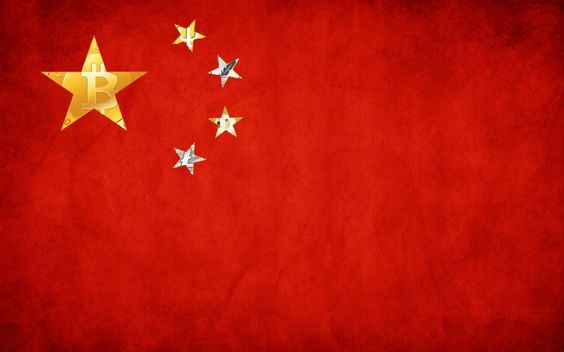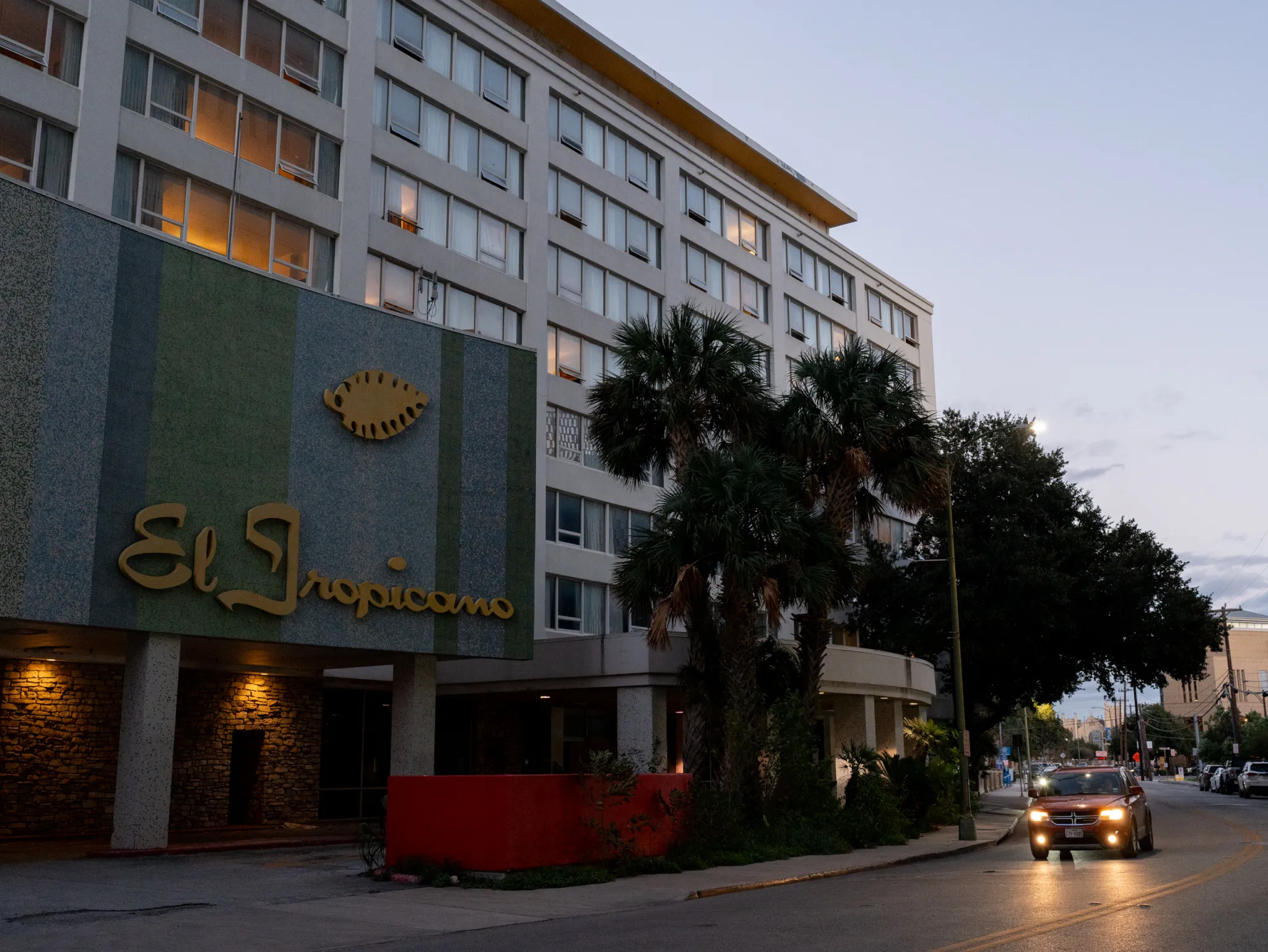By Wan Yanhai, published: May 13, 2015
Guo Yushan (郭玉闪)
In March 2007, Guo Yushan (郭玉闪)and others co-founded Transition Social and Economic Consulting Limited, otherwise known as Beijing Transition Institute. In July 2013, Beijing Bureau of Civil Affairs sent Transition Institute (TI) a violation notice, alleging that the organization had not registered, and was operating publicly as a “private non-enterprise” without legal basis. Four years earlier in 2009, Gongmeng[1] (公盟, or Open Constitution Initiative) was outlawed by the government for the same “reason;” the contents of its entire office, including research data, was confiscated. Falling prey to the same tactics that had affected groups like Aizhixing (爱知行) and Gongmeng, TI was twice the target of audits from Beijing Municipal Tax Bureau, in 2009 and 2013.
On October 9, 2014, Guo, the head of TI, was criminally detained under the crime of “provoking disturbance.” Along with Guo, several TI staff members and associates either disappeared or went into detention. On January 3, 2015, Beijing Security Bureau formally arrested Guo, the legal representative of TI Ltd., and He Zhengjun (何正军), TI’s manager, for the crime of “illegal business operation.” On April 15, 2015, the case was transferred to the Haidian District procuratorate for indictment.
Needless to say, the blow to TI is somber, and more than that, it has sounded the alarm for other nonprofit organizations registered as businesses. This essay explained why, over the last decade or so in mainland China, non-profit, public-interest organizations have resorted to registering as businesses, their predicament, and the harassment they have been met with.
He Zhengjun (何正军)
In the 1980’s, a China devastated by the Cultural Revolution began the process of reforms and modernization. Many officials, some retired and others still holding offices, started civil society groups outside the government, focusing on training talent, independent research and social service. Since the founders were high-level government retirees or employees, these entities were able to obtain the official seals and bank accounts needed for operation without having to register with government regulators, perhaps with approving instructions from certain Party offices or governmental agencies. Some of these entities were hosted by existing organizations.
As the 21st century began, driven by the trend of global issues and collaboration, such as environmental protection, poverty alleviation, AIDS prevention and treatment, and gender equality, international funders thronged to China, and there was an explosive growth of independent civil society groups. The government was also looking forward to the capital, technology and vigor that foreign funders and civil society participation would bring.
Since the development of civil society organizations had been severely restricted in China, many independent civil society groups registered as businesses, while conducting for the most part nonprofit activities in the public interest. Well-known examples include the Beijing Red Maple Hotline for Women and the China branch office of Green Peace.
Wang Xingjuan (王行娟) had worked as a journalist before going to work at the Beijing People’s Publishing House; she was best known for writing a biography of He Zizheng (贺子珍), one of Mao Zedong’s wives. In 1987, Wang and several other women officials, reporters and researchers founded Beijing Women’s Institute (北京妇女研究所), hosted by China Management Science Institute (中国管理科学研究院). In 1992, they started a hotline to provide counseling service for women.
In 1995, the American First Lady Hilary Clinton compiled a list of Chinese women leaders she planned to meet when attending the Fourth World Conference on Women in Beijing; Wang Xingjuan was on the list. When the Chinese state security agencies got word of the list, they began to investigate Wang and Women’s Institute, and discovered that their host, the China Management Science Institute, founded by a retired high-ranking official, was not registered. To protect itself, the Institute severed its ties with the Women’s Institute.
Wang Xingjuan (王行娟). Photo: http://www.storm.mg/article/48105
A desperate Wang found, at this juncture, a woman-owned trade company named Red Maple willing to lend its support. Her organization was able to survive as a registered business. The hotline continued to operate, and received funds from foreign foundations.
As a long-time volunteer at the Women’s Institute, I borrowed from its experience when I registered the Aizhixing Health Institute, working on HIV/AIDS issues, as a business in Beijing in 2002.
The government took an amicable stance towards women’s groups of the academic type. After registering as a business, such groups did not have to pay sales and income taxes upon receiving foreign donations, as these funds did not constitute business income. That is to say, if the donations were not all spent by the end of the year and donors did not ask for a refund, the group can save the remainder for future use. There is another upside to registering as a business: groups can then take advantage of China’s relatively more open business laws and operate programs in locations around China and the world.
At the end of 2003, groups that were even more independent than Red Maple, including Beijing Aizhixing and Beijing Open Constitutionalism Social Sciences Institute, which later became Gongmeng, also registered as business groups. The tax agencies then determined such groups must pay an income tax on unspent donations at the end of the year. This could be solved, and no taxes need be paid, if the group arranged with the donor not to send funds for that quarter. The consequence, however, was that NGOs with a business registration found it difficult to save money. Should the funder withdraw support, the organization may not be able to survive, let alone provide social service or conduct independent research.
In 2004 and 2005, Ukraine, Kyrgyzstan and Croatia saw waves of what came to be known as the Colored Revolution. Russia accused some American foundations, such as the National Endowment for Democracy and the Open Society Institute, of being the hidden sponsors of these changes. Chinese Communist leadership began paying closer attention to the development of China’s civil society.
In March 2005, the district Industry and Commerce Bureaus throughout Beijing sent NGOs registered as businesses the “Registration Transfer Notice to Private Social Science Institutes.” It said, “in accordance with the spirit of documents from the Chinese Communist Party Central Committee, the Beijing Party Committee and the State Administration of Industry and Commerce, private social science institutes, as business units, social groups, social force and nonprofit social organizations operated by individual citizens using non-state assets and dedicated to philosophical and social science study, shall be classified as private non-enterprise business units that are within the scope of the ‘Private Non-enterprise Unit Registration and Management Interim Rules,’ and shall be managed by both civil affairs department and the Federation of Social Sciences.”
The notice states that “those institutes that registered with industry and commerce bureaus and whose names include ‘philosophy’ or ‘social sciences,’ as well as those enterprises or individual businesses whose chief or secondary mission is ‘philosophical or social science activities’ or ‘social science and humanities research and experimental development,’ must transfer their registration to civil affairs agencies. The industry and commerce agencies shall cancel their registrations, shrink the scope of their operation upon inspection, or change the names they register under.”
According to this measure, individual human rights groups found their registration canceled, and the majority of these groups changed their names. For example, my own Beijing Aizhixing Health Education Institute became the Beijing Aizhixing Information Consulting Center.
In 2008, around the time of the Olympics, Chinese civil society groups faced various forms of harassment and threats from tax authorities, industry and commerce bureaus, banks, civil affairs bureaus, and public security bureaus. Some were the target of tax fraud investigations, while others were threatened with shutdown. Banks demanded that groups modify their grant agreements with donors and start paying business tax. In some cases, public security cited violations and shut down groups and their programs.
On December 25, 2009, PRC State Administration of Foreign Exchange issued Notice 63, “On Issues Concerning the Administration of Foreign Exchange Donated to or by Domestic Institutions,” going into effect on March 1, 2010. The rules safeguarded the cash flow between groups founded by the government and their foreign donors, but tightly restricted the donations from Chinese businesses to foreign charities, as well as the ability of religious groups to receive donations in foreign currency. Those who suffered the greatest impact, however, were independent, cutting-edge groups within China.
The fifth clause of the notice states: “Where the donations occur between domestic enterprises and overseas non-profit organizations, the domestic enterprises shall present the following documents so as to proceed in the Banks: …… (3) a notarized donation agreement with the purpose of donation prescribed; ……” It made clear that donation agreements required notarization.
Notarizing grant agreements poses a complex problem. Information about the donor and the grant agreement has to be notarized in the country where the donor resides, and then verification from the Chinese embassy in that country is required. Only then can the recipient withdraw the foreign donation from the bank and legally obtain the funding.
Some groups, in order to sidestep the complex process of international notarization, signed business contracts directly with funders, and paid business tax so that the donation was treated in business terms. However, this changed outright the nature of such donations. When Chinese civil society groups receive foreign funds, their purpose is to serve the Chinese people; they are only forced to accept and to rely upon these funds in the face of the twin hurdle of zero government funding and restrictions on domestic fundraising. When grant agreements changed to business contracts, it inadvertently ran up the legal risk for these groups on both economic and political fronts. Some groups received donations through individuals in the group, which likewise posed legal risks.
In recent years, the Chinese government opened up registration to civil society groups, encouraging public interest groups to register with civil affairs agencies, and supporting their development through government procurement of NGO services. However, it still limits the registration of groups that work on political and legal issues.
While groups dedicated to social service are beginning to earn recognition and monetary support from the government, the remaining groups that continue to need to register as businesses mainly work on advocacy and human rights defense; their sources of support are primarily from overseas. Given the recently passed the “Counterespionage Law” (a complete translation) as well as the “Foreign NGO Management Law” (a bilingual version) and the “National Security Law” (a complete translation) currently under consideration, it would appear that the alternative of business registration for NGOs has now dead-ended.
[1] Gongmeng (公盟): A legal advocacy NGO foundered by Xu Zhiyong, Teng Biao and two others in 2003 and shut down in 2009. The group restarted in 2010 under the name Citizen. – Translator
Wan Yanhai (万延海) “is one of the most prominent leaders in the global campaign against HIV/AIDS. He launched China’s first HIV/AIDS counseling hotline in 1992 while working for China’s National Health Education Institute. In 1994, he founded AIZHI Action Project, an NGO that uses health education, research, publishing, and conferences to confront the growing HIV/AIDS crisis in China. He directs the Beijing Aizhixing Institute, the largest AIDS NGO in China. The institute works on HIV/AIDS and public health related policy, legal aid and human rights, and community outreach among the most vulnerable population. Yanhai organized several challenging campaigns in China including a national compensation campaign for the victims of HIV infection caused by blood transfusion or blood products, a national working group for the educational rights of people with HIV, hepatitis or other health problems, and a China HIV/AIDS NGO Network.” (From Yale World Fellows) Fleeing persecution, Dr. Wan left China with family in 2010. He now lives in the U. S.
















